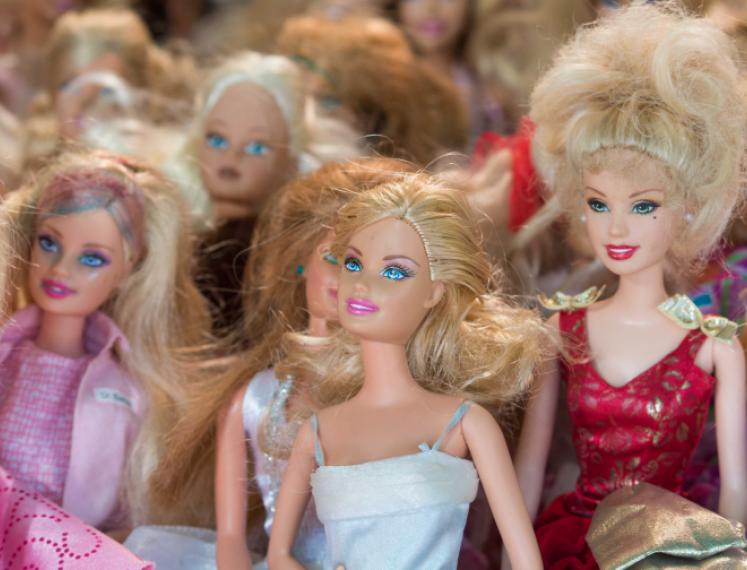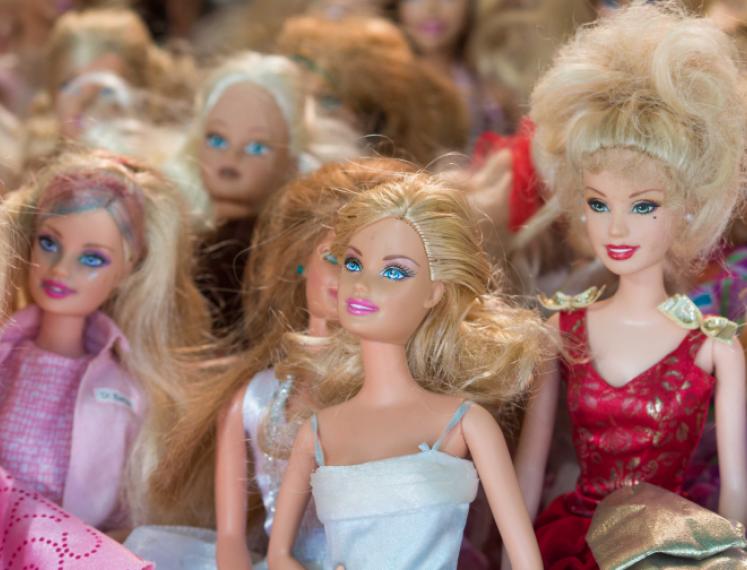
Beauty as a Duty
On Wednesday the 22nd of February we came together in the Offerhaus hall to talk about why beauty matters. Sociologist Giselinde Kuipers started off with an example from Belgian where a woman was hired for a job during the Covid-19 pandemic, but she got fired when her boss saw her bad teeth. This had gone unnoticed as she was wearing a face mask during the job interview. What does this tell us about the importance of beauty in our current society? Has it become more than something favourable, and is it now a necessity where we can be held accountable for? If you have bad teeth, you’re expected to get this fixed, or otherwise you will bear the consequences, and in this example: lose your job. Kuipers has been researching the importance of beauty, and the expanding beauty regime. Why and how did we get here? What are the consequences? And should we do something about it?
A short history
There were times we weren’t supposed to care about our appearances, and in the early days, beauty was for a very selective group of people, mainly higher class women. The majority of people didn’t own a lot of clothes, as shown by an old Dutch phrase: ‘één aan, één in de was, één in de kast' (one to wear, one in the laundry and one for the closet). But something has changed; starting in the beginning of 1900, the importance of beauty expanded. Kuipers points out different causes for this.
Visual media culture
We didn’t always have mirrors, and images of others were also quite rare. Photography just developed in the beginning of the 20th century. When the visual media culture arised, we got to look more and more at pictures of beautiful people and beautiful pictures of people: everyone became a spectator.
The rise of consumerism
At the same time, consumerism emerged and the production of cosmetic and beauty products expanded: from toothpaste to a 7-step skincare. In the 19th century, enhancing your beauty using make-up or other artificial things was considered vain and not done. The rise of the beauty and fashion industry changed this: beauty products became part of your identity, something you can apply to your own body “because you’re worth it”. This was not only limited to women, men were also included.
Democratisation of beauty
As counterintuitive as this may sound: Kuipers points out that democratisation also plays an important role regarding the expanding beauty regime. Under the influence of several feminist waves, which gave women a right to vote and to choose their own partner in marriage, control over their appearance and their bodies increased. With the emergence of middle class working women, beauty was not limited to higher class women, but it became accessible to more and more people. Beauty also became a part of the social arena for symbolic and political struggles: social movements used appearance to make a statement, like burning bras and phrases like ‘Black is Beautiful’. This democratisation of beauty also had consequences that were less fortunate. According to Giselinde Kuipers every step in the process of democratisation has its losers and provokes backlash. Later in this lecture, Kuipers will point out how inequality is enhanced by the expanding beauty regime.
The service economy
When a lot of people worked in agriculture and factories, it was not about how you look, but about the product. When the economy changed to a service economy, work became more about the service you offer, and with that: you and your appearance became a part of the selling point. Representation has been becoming a more essential part of the job market.
Digital media culture
In digital media culture, we’ve not only become a spectator of beauty, we’ve also become a subject. We can create an online double and present a curated version of ourselves in an online environment. This comes with a strong feeling of aspiration as you can see with the rise of ‘influencers’.
The beauty regime: a rate race
Beauty has become taste; it is about fitting in and to express who you are to others. But that’s not the only thing: it has also become a duty. You’re expected to look good. But what are we talking about when we talk about ‘the expanding beauty regime’. What is expanding here?
Knowledge about beauty standards became wider available and as such, standards for appearance became increasingly demanding - not just for the elite, but also for the working class. Next to this, there are also more opportunities and more pressure to cultivate one’s beauty and we have more access to beauty and more control over our appearance. It is possible, so why wouldn’t you take care of it? Domains in which beauty matters are also expanding, like in partner search or at work. There is less possibility to let yourself go. Beauty has become an ethical ideal; it is important for self-worth and social worth; a good person is someone who takes good care of their appearance.
Giselinde Kuipers relates this expanding beauty regime to the term ‘rat race’, an economic concept which describes the process of working harder to be better than someone else, but in the end, nobody gains. Kuipers points out that this self-reinforcing mechanism is also applicable to the ‘rat race’ of beauty; the aspiration to look better than others.
Social inequality
Beauty matters, but why should we care? What are the consequences? Kuipers connects the expanding beauty regime to social inequality. People benefit from being beautiful. When you’re not born with beauty, or you don’t have the resources to buy beauty, you don’t have the same opportunities as people who do. Kuipers uses three concepts to explain this. The first is ‘aesthetic capital’; this refers to the beautiful features you might already have, but also the way we ‘groom’ ourselves using beauty products. When you are considered beautiful you gain possibilities in your social life, in the job market, etc. The second is ‘capital conversion’, also known as ‘The Matthew Effect’. This is mostly described as the rich becoming richer and the poor becoming poorer. For example, when you have less money to spend, you’re also more likely to avoid (high costs from) the dentist. And when you have bad teeth, you’ll have a disadvantage in getting a well paid job. The third term she uses is ‘cultural capital’: money can’t buy you everything, you also need the capacity to have the ‘right taste’. For example, you can buy yourself lip fillers and you might think they look good, but others might perceive it as fake and cartoonish, and not take you seriously when you apply for a job.
Can we do something about this and should we? And if we can’t stop the expanding beauty regime, should we compensate people for not looking good? In Brazil, plastic surgery is available for everyone. That might sound absurd, but is it? You could argue that if it is important, everyone should have it. In Norway, they take a different approach and try to unmask unrealistic beauty standards with a law where influencers need to label retouched images. Although we might doubt that these are solutions to the expanding beauty regime and growing social inequality, we can conclude: beauty pays and we need to take that into consideration.
About Giselinde Kuipers
Giselinde Kuipers is professor of Sociology at KU Leuven. Before her appointment at KU Leuven, Kuipers held the position of professor of Cultural Sociology at the University of Amsterdam. She is a cultural and comparative sociologist who studies the social shaping of cultural standards in today’s increasingly globalised fields and societies.
Read on
During the talk, Giselinde Kuipers showed us some books on the topics she discussed. Do you want to know more about these? We’ve listed them below:
- Perfect Me - Heather Widdows (2019)
- Aesthetic Labour - Chris Warhurst, Dennis Nickson (2021)
- The Protestant Ethic and the Spirit of Capitalism - Max Weber (1905, English translation 1930)
- The Civilizing Process - Norbert Elias (1939, English translation 1969)
- Pretty Modern: Beauty, Sex, and Plastic Surgery in Brazil - Alexander Edmonds (2010)
- Beauty Pays: Why Attractive People Are More Successful - Daniel S. Hamermesh (2013)


